About Anchor Hospital Outpatient Campus
Known for its rich history, Atlanta, Georgia is home to Anchor Hospital Outpatient Campus. Established in 1986, this hospital provides comprehensive addiction and mental health programs for adults, teens and seniors. You can access various outpatient programs to meet you where you are in recovery.
Elderly Adult Programs
Their elderly adult outpatient programs really stood out to me. Older adults can participate in targeted care highlighting 12-Step principles. You’ll benefit from a supportive environment with tailored approaches in group and family sessions. They also provide medically supervised detox to start recovery.
Military Track
Another great feature I noticed was their specialized programs for Veterans and military service members. You can access targeted mental health and substance abuse programs that account for the unique challenges military personnel face including PTSD. They also accept TRICARE so you can receive accessible, affordable care.
Family Involvement
I also think their emphasis on family involvement is nice. They highly encourage your family members to participate in your journey including treatment planning. You and your loved ones can repair broken relationships and create a strong foundation for long term recovery together.
Addiction Treatment Programs
Alcohol Rehab
If you’re struggling with your alcohol use, consider an alcohol rehab in Georgia. During this program, you’ll work with professional counselors to deal with the psychological, emotional, and physical issues that alcohol misuse can cause. Over time, you’ll learn how to live without drinking long term.
Dual Diagnosis
If you have both a mental health condition and substance use disorder, you need dual diagnosis treatment in Georgia to address both issues together. A successful recovery may require counseling, peer support, and even mental health medication to help you manage your mental health symptoms and find better coping strategies.
Adult Program
An adult program in Kentucky addresses the unique needs of adults, such as finding secure housing, building a career, and raising a family. In addition to typical detox, inpatient treatment, and outpatient care, an adult program may also teach clients about building a career, saving for retirement, parenting, and more.
Men's Rehab
When people join a men’s rehab in Georgia, they are able to tackle gender-specific issues while receiving treatment. Men’s programs may include detox, inpatient treatment, outpatient care, and aftercare services. They will also provide education around gender-specific concerns such as fatherhood, healthy relationships, and more.
Women's Rehab
A women’s rehab in Georgia can provide every level of care while addressing the unique needs of women. Women’s programs may include detox, inpatient treatment, outpatient care, aftercare services, and more. They will also address issues specific to women such as motherhood, being a working mother, having healthy communication, and more.
Young Adult Rehab
If you’re a young adult struggling with substance use, consider a young adult rehab program in Georgia. Young adult programs may include detox, inpatient treatment, outpatient care, aftercare services, and more.
Senior Rehab
Insurance Coverage
Medicaid
How do you pay for rehab in Georgia? If you have Medicaid, consider using it to pay for some or all of the costs of treatment. You can access multiple types of treatment in centers that accept Medicaid, including detox, inpatient, and outpatient care.
Medicare
Medicare can help pay for some or all of the costs of rehab in Georgia. You may have out-of-pocket costs such as a deductible or copay, and you’ll want to look for a treatment center that accepts your Medicare coverage.
Self-pay options
Paying for rehab in Georgia yourself, out of your own pocket, is known as self-pay. You can write a check, have money electronically sent to the center, or use a medical loan. Payment details may vary depending on the level of care.
Private insurance
In Georgia, one of the options to pay for substance use treatment is using private insurance. Different plans have different coverage levels, so be sure to check with your insurance company for details. You may be responsible for certain costs, such as copayments and deductibles. Overall, however, private insurance makes treatment much more affordable.
Levels of Care
- 1
Detox Treatment
During detox in Georgia, you’ll be monitored as the substances leave your system. Then you can start fresh and create a new life. Rehab programs often use FDA-approved medications, nutrition, therapy, and other treatment methods to ensure detox is safe and you’re ready for the next step in treatment.
- 2
Inpatient Rehab
During inpatient treatment in Georgia, clients receive evidence-based treatment while living full-time at the facility. Inpatient treatment provides focused therapy that allows you to understand the roots of substance use, learn healthy coping skills, and create a new life.
- 3
Outpatient Rehab
Outpatient treatment in Georgia can provide a great way to practice and reinforce new habits formed in residential rehab programs. There are several goals in outpatient treatment. Some sessions may be focused on education about a certain topic, while others allow clients to discuss a specific issue they face.
- 4
Aftercare Support
It’s easy to wonder what’s next after treatment, but fortunately, aftercare in Georgia can provide ongoing support. One element of aftercare that can be very helpful is peer support, where you connect with those who have been where you are.
Therapies
Cognitive Behavior Therapy
The goal of cognitive behavioral therapy (CBT) in Georgia is to address negative thinking patterns to create positive change. CBT may include role-playing to help you imagine specific situations that might trigger a negative reaction so you can practice challenging automatic thoughts and choosing a more positive response.
Experiential Therapy
Experiential therapy in Georgia involves activities that allow you to build confidence in your ability to make positive changes. You may struggle to address certain emotions or experiences in a traditional setting. Experiential therapy gives you a different environment and can help you breakthrough.
Family Therapy
Family therapy in Georgia can address conflicts in your family so your loved ones can help provide encouragement, support, and accountability as you work through substance use treatment. During family therapy, you may talk about acceptance issues, past trauma, communication problems, and more. These discussions are facilitated by a professional who brings an unbiased perspective and can promote healthy communication.
Group Therapy
Group therapy in Georgia can provide encouragement, support, and accountability as you work through substance use treatment. There are several goals in group therapy. Some sessions may be focused on education about a certain topic, while others allow clients to discuss a specific issue they face. Overall, the group members hold each other accountable and provide encouragement.
Trauma Therapy
Talking about what you’ve been through and how it impacted you is an important way to heal, and trauma-informed therapy in Georgia gives you that opportunity. Substance use treatment includes detox, inpatient treatment, and outpatient care, and trauma-informed therapy may be a part of each of these stages. The goal is to help clients acknowledge past experiences, address their feelings, and develop healthy coping mechanisms.
Accreditations
Location
Contact Anchor Hospital Outpatient Campus
Top Drug Rehab Centers in Georgia
-
 Georgia
GeorgiaNo Longer Bound
2725 Pine Grove Road Cumming, Georgia 30041
-
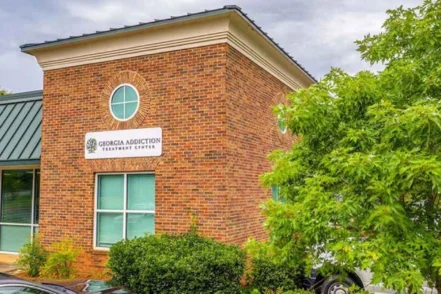 Georgia
GeorgiaGeorgia Addiction Treatment Center
100 Governors Trace, Suite 109-110 Peachtree City, Georgia 30269
-
 Georgia
GeorgiaMount Sinai Dahlonega
330 Mt. Sinai Drive Dahlonega, Georgia 30533
-
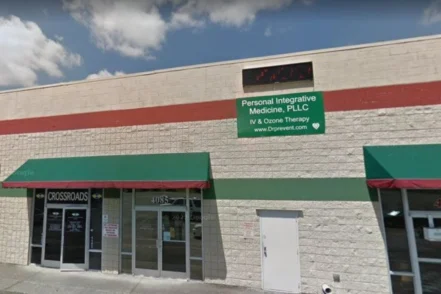 Georgia
GeorgiaCrossroads Treatment Center of Northwest Georgia
4083 Cloud Springs Road Ringgold, Georgia 30736
-
 Georgia
GeorgiaSoutheast Addiction Center
3020 Holcomb Bridge Rd, Suite C Norcross, Georgia 30071
-
 Georgia
GeorgiaThe Carter Treatment Center Cumming
380 Dahlonega, Suite 100 Cumming, Georgia 30040
-
 Georgia
GeorgiaMARR Addiction Treatment Centers
2815 Clearview Place Atlanta, Georgia 30340
-
 Georgia
GeorgiaTwin Lakes Recovery Center Monroe
398 State Hwy 11 Monroe, Georgia 30655
-
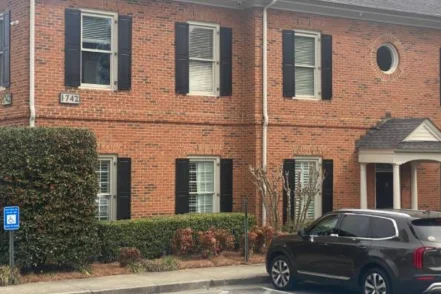 Georgia
GeorgiaAtlanta Recovery Place
1742 Mt Vernon Rd, Suite 100 Dunwoody, Georgia 30338
-
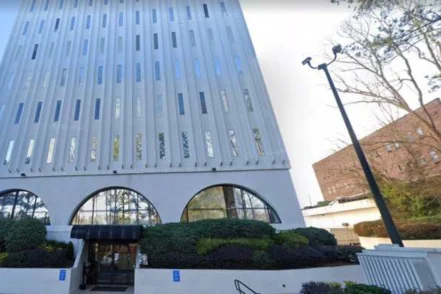 Georgia
GeorgiaSober Living America
2530 Peachwood Circle Ne Atlanta, Georgia 30345
-
 Georgia
GeorgiaBridges of Hope Homerville
1326 Antioch Church Road Homerville, Georgia 31634
-
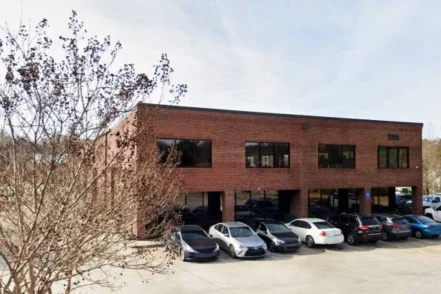 Georgia
GeorgiaBlue Ridge Mountain Recovery Center
255 Depot Street, Suite 200 Ball Ground, Georgia 30107
-
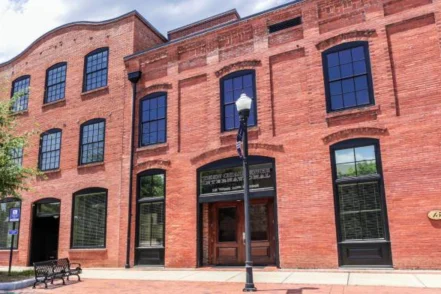 Georgia
GeorgiaTeen Challenge Southeast Region Corporate Office
15 West 10th Street Columbus, Georgia 31901
-
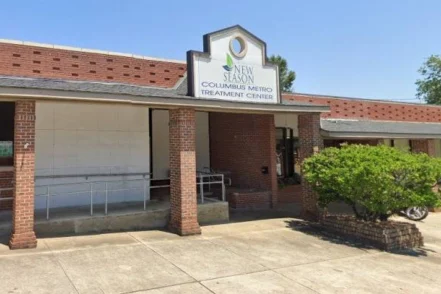 Georgia
GeorgiaNew Season Columbus Metro Treatment Center
1135 13th Street Columbus, Georgia 31901
